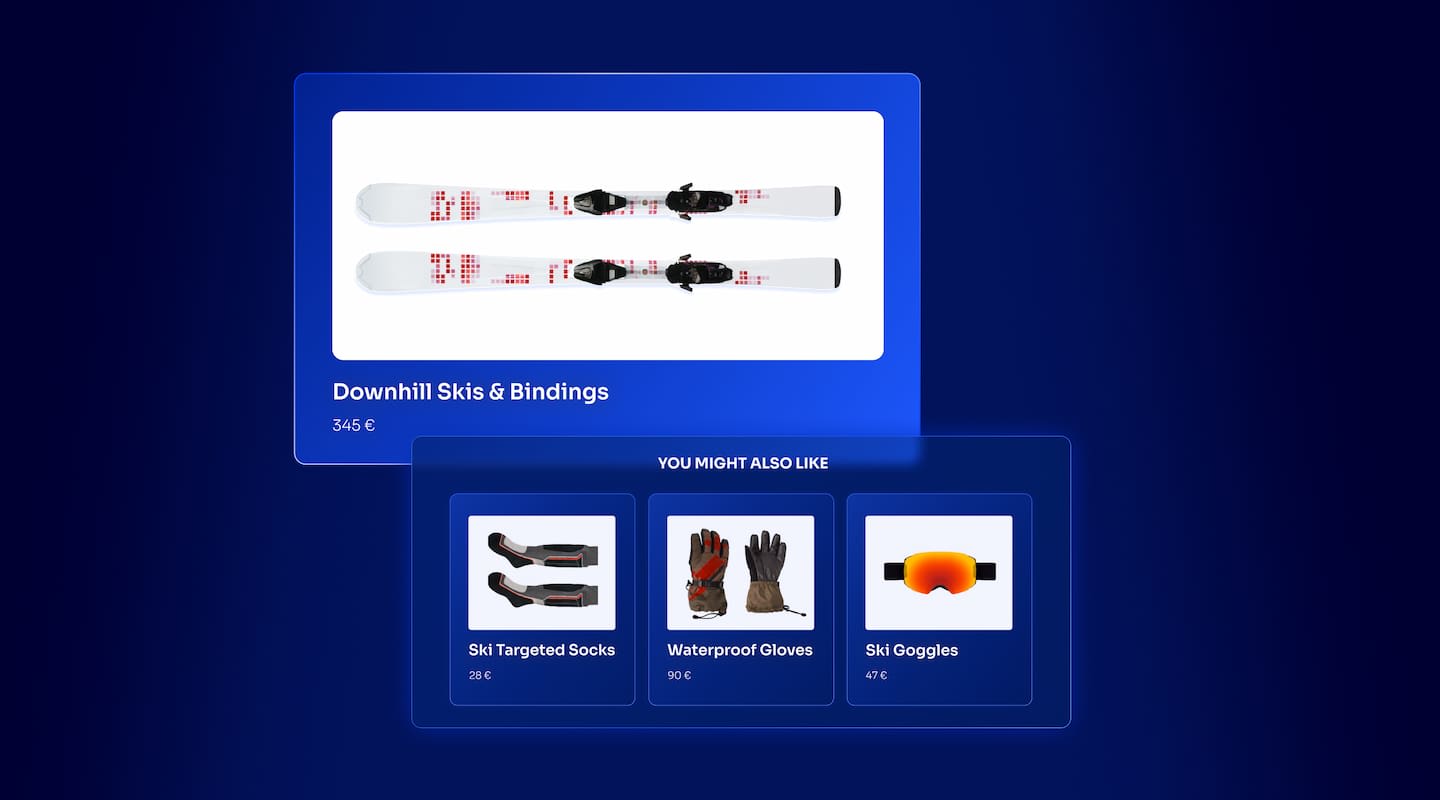Add InstantSearch and Autocomplete to your search experience in just 5 minutes
A good starting point for building a comprehensive search experience is a straightforward app template. When crafting your application’s ...
Senior Product Manager

A good starting point for building a comprehensive search experience is a straightforward app template. When crafting your application’s ...
Senior Product Manager

The inviting ecommerce website template that balances bright colors with plenty of white space. The stylized fonts for the headers ...
Search and Discovery writer

Imagine an online shopping experience designed to reflect your unique consumer needs and preferences — a digital world shaped completely around ...
Senior Digital Marketing Manager, SEO

Winter is here for those in the northern hemisphere, with thoughts drifting toward cozy blankets and mulled wine. But before ...
Sr. Developer Relations Engineer

What if there were a way to persuade shoppers who find your ecommerce site, ultimately making it to a product ...
Senior Digital Marketing Manager, SEO

This year a bunch of our engineers from our Sydney office attended GopherCon AU at University of Technology, Sydney, in ...
David Howden &
James Kozianski

Second only to personalization, conversational commerce has been a hot topic of conversation (pun intended) amongst retailers for the better ...
Principal, Klein4Retail

Algolia’s Recommend complements site search and discovery. As customers browse or search your site, dynamic recommendations encourage customers to ...
Frontend Engineer

Winter is coming, along with a bunch of houseguests. You want to replace your battered old sofa — after all, the ...
Search and Discovery writer

Search is a very complex problem Search is a complex problem that is hard to customize to a particular use ...
Co-founder & former CTO at Algolia

2%. That’s the average conversion rate for an online store. Unless you’re performing at Amazon’s promoted products ...
Senior Digital Marketing Manager, SEO

What’s a vector database? And how different is it than a regular-old traditional relational database? If you’re ...
Search and Discovery writer

How do you measure the success of a new feature? How do you test the impact? There are different ways ...
Senior Software Engineer

Algolia's advanced search capabilities pair seamlessly with iOS or Android Apps when using FlutterFlow. App development and search design ...
Sr. Developer Relations Engineer

In the midst of the Black Friday shopping frenzy, Algolia soared to new heights, setting new records and delivering an ...
Chief Executive Officer and Board Member at Algolia

When was your last online shopping trip, and how did it go? For consumers, it’s becoming arguably tougher to ...
Senior Digital Marketing Manager, SEO

Have you put your blood, sweat, and tears into perfecting your online store, only to see your conversion rates stuck ...
Senior Digital Marketing Manager, SEO

“Hello, how can I help you today?” This has to be the most tired, but nevertheless tried-and-true ...
Search and Discovery writer
Jekyll is an open-source static site generator originally developed by Tom Preston-Werner (the creator of GitHub) as a response to the bloated systems of the day like WordPress. Despite largely kicking off the static/Jamstack movement though, the developer world seems to have largely moved off of it. In 2021, the last active maintainer of the project and our friend Frank Taillandier passed away, leaving the project essentially unshepherded.
Nevertheless, many companies are still using Jekyll for their ecommerce projects because of the investment required to switch. After all, if you’ve got a team of Ruby developers and a perfectly-running website already, why fix what isn’t broken just to be more “modern”?
It’s a valid argument in some cases, so we wanted to update this old article to reflect how you can use Algolia with Jekyll (or any other custom, outdated, or otherwise unsupported framework for that matter) in 2023.
If you’d like to give this a go on a prototype Jekyll site before messing with your own integration, maybe check out Tom Preston-Werner’s blog, a complete Jekyll project that’s free to use with attribution as long as you don’t republish any of his articles.
Because it’s only possible to demonstrate search when you’ve got searchable data indexed, we’re not going to provide a code repository or free index to use so as to respect the licensing of Tom’s content. But this will work with any site on any framework, so give this a shot with your sample project of choice.
It works like this:
const searchClient = algoliasearch('YourApplicationID',
'YourSearchOnlyAPIKey');
const search = instantsearch({
indexName: 'demo_ecommerce',
searchClient
});
search.addWidgets([
searchBox({
container: "#searchbox"
}),
hits({
container: "#hits"
})
]);
search.start();
And that’s it! We get a lot of questions about using Algolia on unsupported frameworks, but after following these seven steps, you’ve got yourself a search engine on your site regardless of the framework you’re using.
It’s much more flexible than the old way of having a plugin for each little framework. Plus, all of the developers using obscure frameworks and custom implementations can help each other find solutions now that they’re going about it the same way.
So if you’ve got any questions about adding search to your site, feel free to check out Stack Overflow, our Discourse forum, and if you need more personal help, you can get a hold of us here.
Happy building!
Technical Writer
Powered by Algolia Recommend